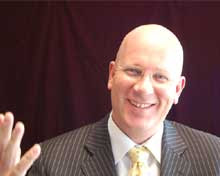So if you read the BUSREP.CO.ZA article by a journalist quoting hungry for money SARS, in your panic you may make the wrong classification choices on how to treat your investment (or not?) in the Ponzi-scam by Barry Tannenbaum. If you clssify it as an investment, you may have participated in a broader unlawful transaction breaking every rulebook in the Banks Act. On the other hand...and wouldn't you like to know? A Special Report of the likely tax consequences on the Barry Tannenbaum Ponzi Scam is available to order - currently being researched and written. One copy for the first 5 subscribers is available for a charitable contribution of R50,00 to the SPCA. The stray dogs and cats need it! Everyone after that - the research and tax direction to help you get the taxman to pay for your mess, will cost you R950,00 per report. Cheap, considering your losses may come down by your marginal tax rate.
BUSREP.CO.ZA Article
Tax shock may await Tannenbaum's investors
June 18, 2009
By Roy Cokayne
Investors in the Ponzi-type investment scheme operated by Barry Tannenbaum, which allegedly fleeced billions of rands from about 400 people, could be in for a painful tax surprise even if they rolled over their investments and lost both their capital and profits.
Provided it was not an illicit scheme, the SA Revenue Service (Sars) would regard any profit from the investment as a dividend and therefore taxable, Sars spokesman Adrian Lackay said yesterday.
However, if it is proved to be an illicit scheme, participants might be forced to pay money they made to liquidators.
Lackay added that there might be a capital loss, but the profits were of a revenue nature and therefore taxable, stressing that a "normal pyramid scheme" was taxable.
Sars taxed the Krion Financial Services pyramid scheme, which raised about R1.5 billion from about 10 000 investors largely in the Vaal triangle before it was liquidated in July 2003.
Lackay said Sars' approach in the Krion scheme was that the orchestrators had no intention to repay all the money they raised and the purpose was to enrich themselves. The funds were not illicit and were therefore taxable in their hands.
Subscribe to:
Post Comments (Atom)

No comments:
Post a Comment